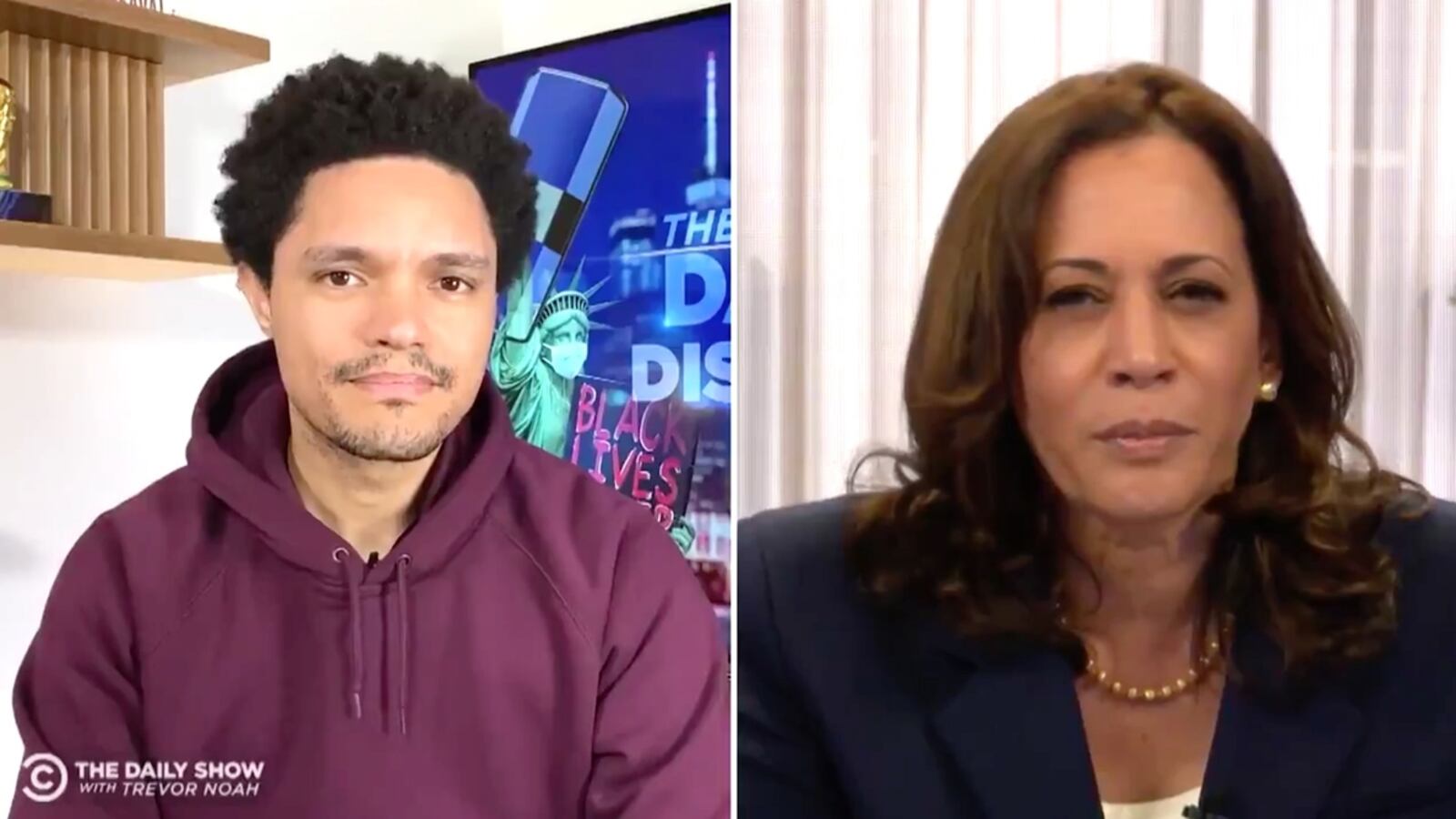During his interview with Senator Kamala Harris (D-CA) just a few days before she could become the first woman of color—or woman, period, for that matter—to be elected vice president of the United States, Trevor Noah asked her a simple question about her name that elicited a deeply thoughtful response.
“Your name,” the Daily Show host began as his guest began to crack a smile. “Why does it seem like it becomes harder to pronounce your name the more conservative a person is? Because I’ve noticed that there are some people you’re worked with in the Senate who don’t seem to know your name.”
Noting that “any immigrant” or “child of immigrants” has a similar story, Noah asked, “How does this make you feel when you see people fighting about your name?”
As she often does in interviews, Harris was laughing genially during the question, but then she turned more serious than usual as she began to answer.
“Well, that’s an interesting way to ask the question,” the senator replied. “Because when I see the people who have had the experience of having been given a name from their family, which is one of the greatest gifts that a family can give you—it’s the first gift that a child, when they enter the earth, receives from their family.”
“It is usually informed by tradition and love and the hope and aspiration the family has for that child,” she continued. “It is something precious and sacred. And it is a part of their identity. And when I see people fighting for the right for that to be respected and treated in a dignified way, I applaud and salute that.”
Then Harris turned to the people on the other side of that fight, which as Noah alluded to include her Senate colleagues like Republican David Perdue of Georgia who was widely criticized earlier this month for mocking her name during a Trump rally. Similarly, Tucker Carlson who has spent months purposefully mangling “Kamala” on his Fox News.
To those men and anyone else who wants to “play childish games” she said the idea that the “highest elected leaders should conduct themselves like they did when they were children on the playground” ultimately “speaks poorly of their appreciation for the responsibility and the role that they have.”
“And I think it’s a reflection of their values and maturity,” Harris concluded.
For more, listen and subscribe to The Last Laugh podcast.






